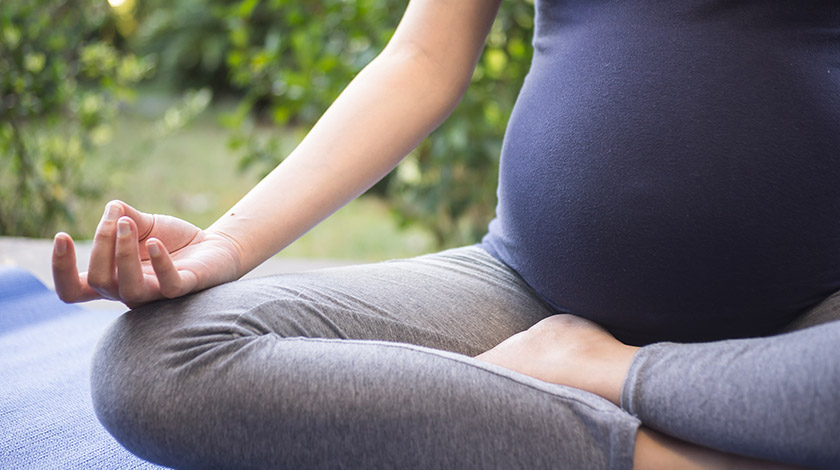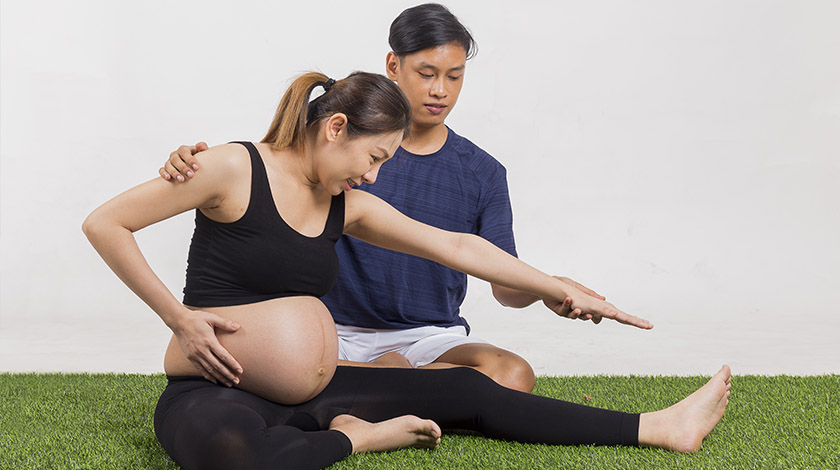One common misconception is that pregnant women can’t exercise at all. While it’s true that vigorous physical activity should be avoided – you won’t see expectant mothers running marathons anytime soon – light exercise during pregnancy can do wonders for your mental and physical health.
When to start exercising
Although it may seem counterintuitive, the early stages of your pregnancy are probably the least suited to exercise. The first trimester often brings with it fatigue and nausea as your body adapts to its new condition, so exercise is probably the absolute last thing on your mind.
Professionals usually advise waiting till the start of your second trimester before commencing any kind of physical regime. When you feel like your body has adjusted to its happy new occupant, you can start with 5 to 10 minutes of exercise per day, gradually adding 5 minutes to your workout session each week.
What exercises to do
Aerobic exercises are your best bet. Try:
- walking;
- swimming and water aerobics;
- stationary cycling; and
- supervised yoga.
When choosing exercises for your pregnancy workout regime, it’s vital to keep the following in mind.
- Stay away from load-bearing exercises. Your core muscles (particularly your lower back) are already under great stress during pregnancy, and you don’t want to risk injury by adding to that stress.
- Avoid outdoor activities that involve drastic changes in air pressure. That means no high-altitude sports like mountain-climbing, and no scuba diving. Your baby has no protection against altitude and decompression sickness, so stay safe!
- If you’re not sure what exercises are safe to do for your stage of pregnancy, consult your doctor and join a supervised exercise class for expectant mothers. Having the guidance of a seasoned professional will put your mind at ease and help you enjoy your workout, while keeping your baby safe and sound.
When to stop exercising
Knowing when to stop exercising is even more important than knowing what exercises to do. Here are some warning signs that every expectant mother should be alert to when exercising.
- Chest or calf pain
- Increased shortness of breath
- Pain in your pelvic gurdle
- Pain in your abdomen, back or pubic area
- Contractions in the uterus or womb
- Fluid leaking from the vagina
- Vaginal bleeding
- Giddiness or headaches
- Your baby being less active than normal
Getting the most out of your exercise
Finally, here are three tips to make sure that you and your baby get maximum benefit from your exercise regime.
- Drink lots of water before and after exercise to prevent dehydration. Remember – your baby needs lots of fluids too, so you should be drinking more than the recommended 2 litres per day.
- Wear adequately ventilated clothing to prevent overheating. During the first twelve weeks of pregnancy, overheating of your body can affect your baby’s development. Keep your body temperature below 39.2 degrees centigrade and avoid exercising in hot and humid conditions. Find an air-conditioned gym if need be!
- Try to consume more complex carbohydrates (think brown rice, whole wheat bread and high-fibre pasta) to replace all those calories you burn off during exercise and feed your hungry baby.
Resources
1. American Congress of Obstetricians and Gynaecologists. Exercise during pregnancy and the post-partum period. Visited July 2013.
© Cigna Healthcare 2023
Information provided in this article is intended for health and fitness purposes only and is not intended for use in the diagnosis of disease or other conditions, or in the cure, mitigation, treatment or prevention of disease (see Terms & Conditions for details). Any health-related information found in this article is available only for your interest and should not be treated as medical advice. Users should seek any medical advice from a physician, especially before self-diagnosing any ailment or embarking on any new lifestyle or exercise regime. Any information contained in this article may not be suitable, accurate, complete or reliable. Cigna Healthcare accepts no responsibility for the content or accuracy of information contained on external websites or resources, or for the security and safety of using them. "Cigna Healthcare" and the "Tree of Life" logo are registered trademarks of Cigna Intellectual Property, Inc. in the United States and elsewhere, licensed for use. All products and services are provided by or through operating subsidiaries, and not by The Cigna Group.





